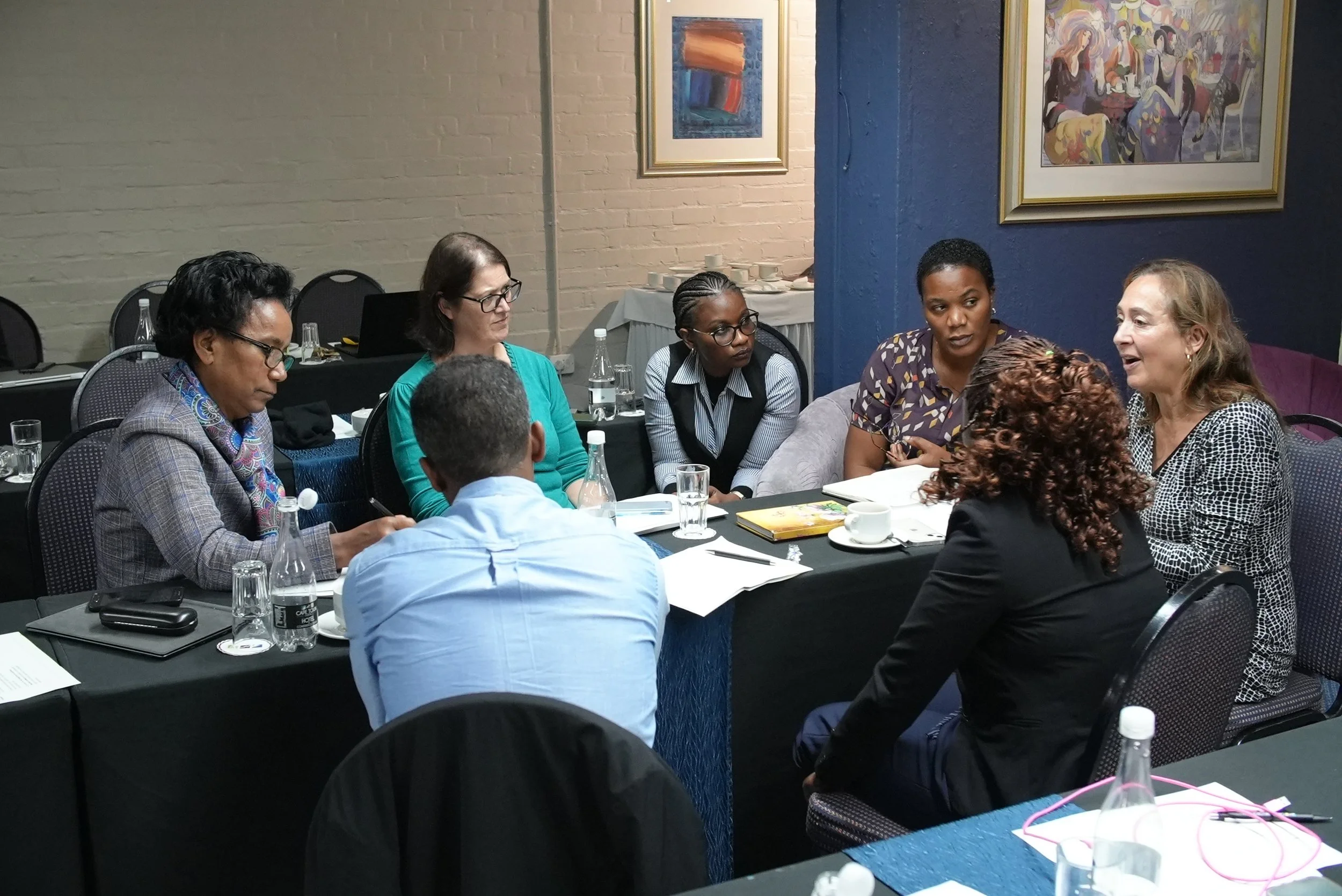JustGESI Workshop in Cape Town: Advancing Gender Equality and Social Inclusion for an Inclusive Energy Future
Written by: Dr Sangita Thebe Limbu, JustGESI Research Associate
Earlier this October (6–9 October 2025), the JustGESI research team convened in Cape Town, South Africa, for a dynamic four-day workshop hosted by the African Climate and Development Initiative (ACDI) at the University of Cape Town (UCT). This marked the first in-person, all-team gathering since the JustGESI project’s launch in January 2025, bringing together researchers and practitioners from Ethiopia, Malawi, Mozambique, Tanzania, South Africa, and the UK.
The workshop created a vibrant space for interdisciplinary learning, reflection, and collaboration, with participants including engineers, architects, sociologists, geographers, political scientists, anthropologists, gender experts, public health specialists, and NGO practitioners. Together, the team explored how Gender Equality and Social Inclusion (GESI) is understood and implemented within national energy strategies across the project’s focus countries. Further discussions highlighted persistent gaps between policy and practice across diverse urban and rural contexts shaped by intersecting identities and power structures.
JustGESI team gathered in Cape Town for the first in-person annual meeting in October 2025 (Photo taken outside The Sustainability Institute by Sean Lovell)
JustGESI team members joined by external participants to discuss feminist approaches to just energy transitions during the public workshop in Cape Town (Photo by Sean Lovell)
Key Highlights and Insights from the Workshop
Gender is about power, not women: Discussions emphasised reframing gender beyond a ‘women’s issue’ to address broader social relations, norms, structural drivers of discrimination, and intersecting inequalities that hinder equitable energy transitions.
Data matters: The lack of gender-disaggregated and intersectional data remains a barrier to inclusive policy design, implementation, and evaluation. Discussions also focused on how much data is ‘enough’ and highlighted the risks of using data scarcity as an excuse to delay impactful projects that can improve health and well-being.
Bridging the policy-practice gap: Despite gender being referenced in many national strategies, operationalising gender commitments, especially at grassroots levels, remains a challenge.
Institutions shape outcomes: Everyday institutional practices often reproduce inequalities, even under progressive policies. Therefore, understanding these institutional dynamics is essential for advancing GESI.
Energy transitions are political: Technical solutions alone are insufficient in facilitating just energy transition; they demand political will, multisectoral collaboration, and meaningful community engagement and ownership
Public Engagement and Site Visits
The internal team workshop culminated in a one-day public event focused on advancing GESI in Africa’s energy transition. The event featured a panel discussion on knowledge gaps in GESI and energy research, an interactive workshop on feminist approaches to just energy systems, presentations on community-based eCooking initiatives in Tanzania led by TaTEDO SESO, and contributions from ACDI alongside a showcase of student-led research at UCT on topics ranging from climate change impacts to new energy technologies and energy futures.
JustGESI team visiting the African Development and Climate Initiative at the University of Cape Town (Photo by Sean Lovell)
JustGESI team members also visited the District Six Museum, the Sustainability Institute, and Langa Township, gaining valuable insights into Cape Town’s socio-historical context, urban planning and energy futures, and sustainable development initiatives. These visits reinforced the importance of grounding energy transitions in the everyday realities of people and communities, while acknowledging complex histories of exclusion, recognising community resilience, and addressing the structural and institutional barriers that impede a just and inclusive energy transition.
Looking Ahead
The Cape Town meeting was a valuable moment of connection, learning, and reflection for the JustGESI team. It provided an opportunity for members to build relationships, share experiences, and collectively review the project’s achievements, challenges, and impacts. The team also mapped out next steps for the coming two years. This gathering reaffirmed the JustGESI team’s shared commitment to advancing just, inclusive, and sustainable energy futures, grounded in the values of collaboration, critical reflection, and care.



